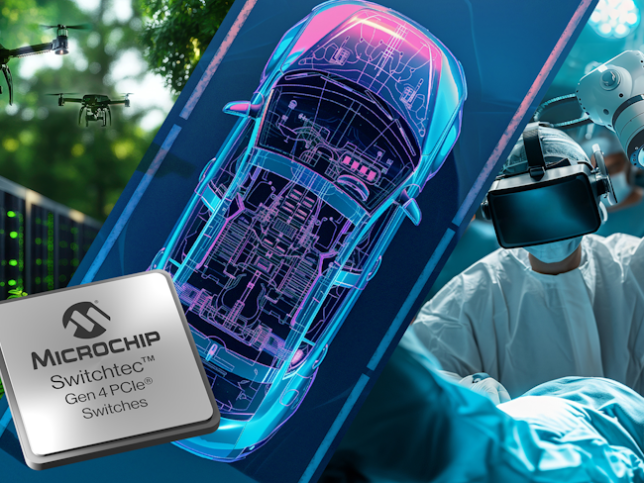Microchip Technology’s latest PCIe switches are only Gen 4.0, but for automotive and industrial applications, the bandwidth is more than enough.
The company’s recently announced PCI100x family of Switchtec PCIe Gen 4.0 switches come in variants to support packet switching and multi-host applications. They also include the PCI1005, a packet switch that expands a single host PCIe port to as many as six endpoints, as well as the PCI1003, which enables multi-host connectivity through non-transparent bridging (NTB) and is fully configurable to support from four to eight ports.
The PCI100x family of Switchtec PCIe switches are Gen 5.0 compliant—Gen 7.0 was recently presented to PCI-SiG) members for review—and up to 16GT/s. But while PCIe Gen 5.0 parts are in production, Gen 6.0 adoption is in its infancy. For automotive applications, Gen 4.0 is more than enough.
In 2024, Gen 5.0 cost 50% more than Gen 4.0, but with 100% more bandwidth; a streaming scenario can take advantage of Gen 5.0, but if you do not need 32 Gb per lane, and you are not going to use it all, you are paying for what you do not need. Some defence and aerospace companies will spend more on data center grade Gen 5.0 switches in small volumes because they are using a lot of bandwidth.
The approach with automotive OEMs is not to reinvent the wheel by leveraging what has been proven in the data center for nearly 30 years while doing it through the lens of functional safety and endurance in extreme environments, both of which are critical for modern vehicle applications.
Automotive is a high priority for PCIe and the PCI-SIG is in charge of guiding its evolution, which aligns well with increasing adoption of ethernet and NVMe within the modern vehicle. PCI-SIG announced it was committed to releasing PCIe 7.0 in 2025 during the PCI–SIG Developers Conference with the aim of doubling the data rate to 128 GT/s and up to 512 GB/s bi–directionally via x16 configuration. It is now in the review phase and should be released later this year.
Read the full EE Times article.
Gary Hilson is a freelance writer with a focus on B2B technology, including information technology, cybersecurity, and semiconductors.
